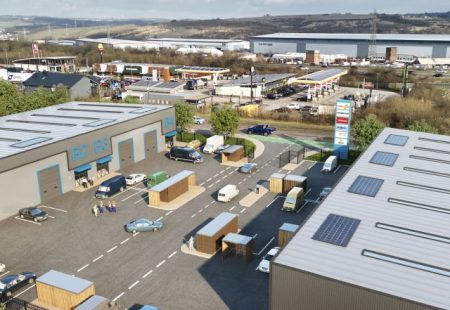Skills gap must be a priority for Government’s industrial strategy
Addressing the skills gap must the top priority for the Government’s Industrial Strategy.
Availability of suitably skilled workers, both at school-leaver level and for key positions, remains the biggest concern for firms, East Midlands Chamber told Greg Clark MP, the Secretary of State for Business, Energy and Industrial Strategy, in its formal response to consultation.
“To develop an economy fit for the future, it is essential that we focus on addressing the skills gaps within the high productivity sectors where we perform well, such as engineering and manufacturing,” the Chamber’s response said.
And it called on Mr Clark to focus not just on basic skills but also on soft skills, such as communication, collaboration and problem-solving.
“Employers can train a new recruit to do a job, but they can’t train attitude,” the Chamber’s submission said.
The second most important consideration for implementation of an Industrial Strategy, as discussed at several regional forums and highlighted by Chamber members, has to be improving transport infrastructure at intra- and inter-regional levels.
“Our central location and availability of land provide opportunities for connecting to the rest of the UK and internationally that other areas do not have,” said the Chamber’s response, adding: “Unsurprisingly, this has resulted in strong transport, logistics and distribution sectors based in the East Midlands.
“Situated between our three largest cities, East Midlands Airport is the UK’s largest pure freight airport, a new Strategic Rail Freight Interchange is currently being developed and we are planning for the future arrival of an HS2 station at Toton. It is essential that the opportunities these bring are maximised.”
The third priority highlighted by the Chamber is Government backing for businesses looking to exploit opportunities presented by the weaker pound, which has made UK-made goods cheaper overseas.
“For smaller businesses, or those looking to go overseas for the first time, support for market research and trade missions is one very practical way that they can be aided,” said the response.
It also called for digital technology to be given a higher profile, saying:-
“Fast, reliable, affordable broadband will be an enabler in allowing this to happen and must be delivered to all businesses and residences alike.”
Other priorities included affordable energy and low-carbon technologies, an area where the East Midlands has the potential to become a world-leader, and entrepreneurship, which the response described as “an important trait within the East Midlands”.
Finally, the response urged Government to work with Chambers of Commerce to deliver its Industrial Strategy because Chambers “provide a presence, consistency and stability not replicated anywhere else in the Midlands landscape” and because “we have no political affiliations and a strong track record of working with partners from across the public and private sector”.
Chris Hobson, Director of Policy at East Midlands Chamber, said:-
“The Government, whatever its persuasion after 8 June, has an opportunity to shape Britain’s economic future post-Brexit. It needs to heed the voice of business in determining that future and as the biggest business-representation organisation in the Midlands, we hope it will take note of what our members are saying.”




